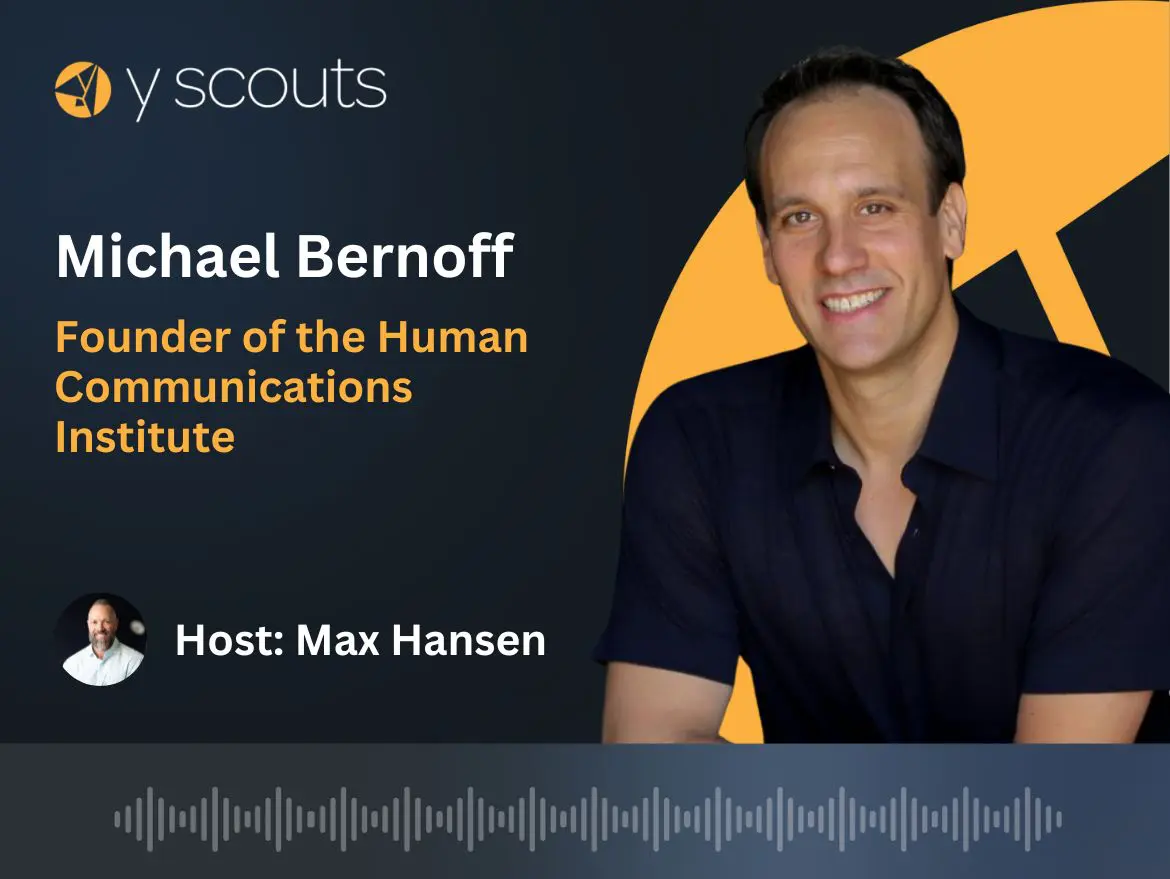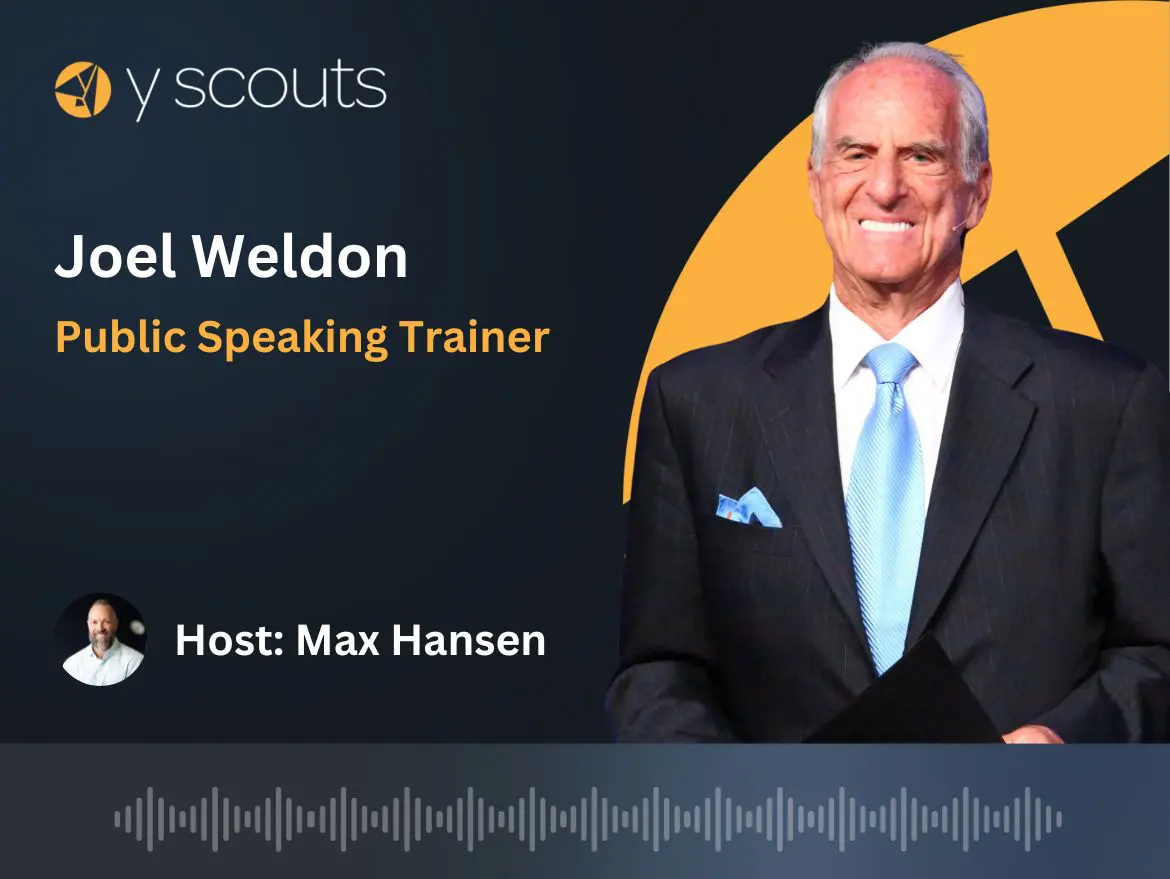Gerald Chertavian is the CEO and Founder of Year Up, a national program that empowers urban young adults to enter the economic mainstream. With its annual operating budget of approximately $100M, Year Up is one of the fastest growing non-profits in the nation and was recognized by Fast Company and The Monitor Group as one of the top 25 organizations using business excellence to engineer social change.
If you’ve yet to hear the story of Year Up, you are in for a real treat. Resulting from the impact through Big Brothers Big Sisters and serving as a Big Brother to a young adult named David Heredia, Gerald and the team at Year Up are on a mission to close the Opportunity Divide.
What does this mean?
There are hundreds of thousands of underserved young professionals in our great country, young men and women who have unbelievable talent and passion who simply need a chance to demonstrate their potential. Focusing on the ABC’s, which Gerald refers to as Attitude, Behaviors, and Communication, the Year Up team has created a powerful platform that gives young professionals a chance to develop the skills they need to secure a chance at changing their life’s story.
Inspirational is not a strong enough a word to describe what Gerald and the Year Up team have done so far, and they are only getting started. Enjoy this captivating episode featuring Gerald Chertavian!
Table of Contents
ToggleShow highlights:
- Why Gerald founded Year Up
- Why Gerald chose to found a technology company before founding Year Up
- How Year Up’s economic incentives keep the organization moving forward (8:00)
- How to think about hiring in ways that tap into talent that is not being utilized (11:30)
Show links:
You’re a graduate of Bowdoin College and Harvard Business School. In a previous interview, you said your best education came on Saturdays in the late 80’s in the lower east side of Manhattan. Can you talk about those Saturdays and how that shaped your outlook on Year Up?
When I moved down to Wall Street in ’87 one of the first things I did was to sign up as a Big Brother. I was matched with a young boy who lived in what was then the most heavily photographed crime scene in New York City. I had the good fortune to spend every Saturday with David, my little brother, and got to understand something profound. David’s zip code, the bank balance of his mom, the school system he attended and the color of his skin was truly affecting the opportunities to which we have access.
Those Saturdays for me taught me about the Opportunity Divide in this country. How zip codes can determine your destiny in profound ways. It taught me we were wasting tremendous amounts of human capital in a country where we have no one to waste. And it taught me about racism, discrimination and how that is being experienced.
It was a very profound learning influenced the rest of my life and set the course to ultimately start Year Up. To try to address some of the challenges that I was up close in the three years of Saturdays I spent with David and his family.
What’s been the biggest shock from a feedback standpoint?
How fast and how high our young adults can go. It continually shows me how motivated, hard working young adults, when given the appropriate runway, can achieve incredible outcomes. Even sometimes more than I may have imagine.
When American Express tells us, “We want to hire hundreds of folks through your program to support some of our technical systems, and that it’s a better source of talent for us” – that is a huge wake up call for all companies to ask, “What am I missing through this talent pipeline? How do I think about hiring in ways that tap into talent that is not being utilized well in this country?”
Do you think that says something about the existing college and university model that exists today?
Our post secondary system will undergo radical change in the next twenty years. We’re going to see more change in the next twenty years in post secondary education that we have seen in the last 200 years. The reason is because that system, especially four year, fixed term colleges, while incredible places of learning, they will not be the vehicle for which this country is going to educate the millions and millions of folks we need to fulfill the demand for a knowledge based economy.
Who is going to drive the educational revolution?
We believe that business will increasingly get into the business of education. We think there’s a role for the government to create the right incentive systems. Clearly the government isn’t going to be in a position to require more resources. But what the government can do is create the appropriate incentive systems. Business is going to have to play a greater role in this process as we’re seeing happen.
Fifty percent of all the people who go to college in America work full time. 85% of those who went to college work at least part time. If you graduate high school and you’re coming from a low income background, the fact of the matter is that you have to do both pay worthy activity and credit worthy activity at the same time. You can feed your brain if you can’t feed your belly. We have to understand that the systems and the path needs to actually accommodate that duality of both working and learning. It is the norm for the majority of Americans in this country – in our systems, our policies our structures – haven’t actually caught up to recognize that the vast majority of Americans will work while gaining post secondary degrees and credentials.
Preparing them early on for that reality is both respectful and recognized as what they’re going to need to actually be 21st century citizens and contribute to our economy and communities.
I want to switch gears and talk about civil rights. You’ve said that social entrepreneurship is the next step in the civil rights movement. Can you share about the importance of social entrepreneurship?
What is Year Up if nothing but an opportunity for young people to get the economic justice they deserve. The educational justice they deserve. To gain the skills, knowledge, experience and degrees they need, and to do it in a way that’s achievable. This is an aspect or continuation of a very long journey. Year Up is merely one player on a very broad stage that is fighting for important rights and important aspects of justice. In this case it’s about economics in education and insuring that our young people have access to that.
It’s continuing on a journey that was started by giants well before us. We kneel next to those folks and are humble as we push down the path of creating greater justice. Many social entrepreneurs are tackling various aspects of justice.
The talent that works for Year Up. What do you look for? What’s most important to you as you think about the people who are going to be delivering Year Up’s programs to these adults around the country. What’s some of the criteria you’re looking for when it comes to those are going to enroll as members of your team?
We always say at Year Up that we don’t care how much you know until we know how much you care. You start in an organization like Year Up with an understanding of why does someone want to be here. Why do they want to serve young people? Do they consider themselves grateful to be in a position to serve others? At a base case, they are highly aligned with our mission and find it deeply meaningful. So you start there.
I always say that if you can’t get past that, it doesn’t matter what competencies someone is going to bring to the equation. If they’re not aligned with our mission and values and operating principles, it really doesn’t matter on the skill level.
Now, assuming you have people who are a mission fit, and clearly you want to find people who are excellent in whatever functional area you’re hiring for. But you start and end with mission. We use our students in our recruiting process. I think students are excellent judges in character. No one gets a job at Year Up unless they mock teach a class of students. Those students feedback is very important in whether or not we make our hire because we trust our students to bring that insight. Over the years it’s proven to be very effective to identify the folks who this is the right next step in their lives.
We’ll hire 250 people this year across the country, and we want the best people in the country who have the courage and audacity to believe that in our lifetimes, we can change this country for the better.
Listen to more episodes from the Built On Purpose podcast at yscouts.com/podcast.





